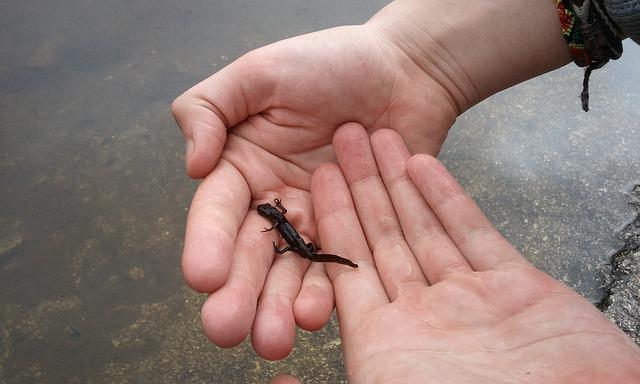When it comes to taking newts from the wild, there are a lot of misconceptions out there. People think that they can just take them whenever they want and that it won’t have any negative impacts on the population. But this isn’t the case at all. In this blog post, we will explore the surprising truth about taking newts from their natural habitats.
Introduction
The newt is a fascinating creature that has long been a source of fascination for humans. These small, semiaquatic amphibians are found in bodies of water all over the world, and their distinctive appearance has earned them a place in popular culture and mythology.
While newts are not currently endangered, their populations have declined in recent years due to habitat loss and other environmental threats. As a result, it is important to be mindful of the impact that our actions can have on these delicate creatures.
With this in mind, it is generally not advisable to take newts from the wild. These animals are highly sensitive to changes in their environment, and even the most well-meaning hobbyist can inadvertently cause harm.
Additionally, newts that are taken from the wild are often subject to stress and mistreatment, which can lead to illness or death. If you are interested in keeping newts as pets, it is best to purchase them from a reputable breeder.
By doing so, you can be sure that your pet will be healthy and well-cared for, and you can rest assured knowing that you are not contributing to the decline of this amazing animal.
The Negative Impacts of Taking Newts from the Wild
Newts are a popular pet, especially among those who appreciate amphibians. Unfortunately, the demand for newts has led to a thriving black market trade. Most of the newts sold as pets are wild-caught, and the capture and transport of these animals can have a serious impact on wild populations.
The process of capturing and exporting newts is often detrimental to their health. Newts are frequently collected from the wild using traps or snares, which can injure or kill them.
Furthermore, the journey to their new home is often stressful and dangerous, and many newts do not survive the trip. Even if they do make it to their destination alive, they may be exposed to new diseases or parasites that can decimate wild populations.
In addition to the direct impacts of capture and transport, the demand for wild-caught newts also drives habitat loss and degradation. In order to maximize profits, collectors often target areas with high concentrations of newts, which can quickly deplete local populations.
Furthermore, the construction of roads and other infrastructure associated with collection activities can damage delicate ecosystems.
The trade-in of wild-caught newts is having a devastating impact on many populations around the world. If we want to protect these animals for future generations, it is important to be aware of the consequences of our actions.
How You Can Help
If you are interested in keeping newts as pets, there are a few things that you can do to help protect wild populations. First and foremost, avoid purchasing newts that have been captured from the wild.
This includes newts that are advertised as “captive-bred” but have been collected from the wild at some point in their lives. Instead, only purchase newts from reputable breeders who have verifiable proof that their animals were bred in captivity.
The Surprising Truth About Taking Newts from the Wild
Although it may seem harmless, taking newts from the wild can have a significant impact on local ecosystems. Newts are an important part of the food chain, and their removal can disrupt the balance of predator and prey species.
Also, newts play an important role in the dispersal of plants and other organisms. When they are removed from an area, this can lead to a decrease in biodiversity. Finally, taking newts from the wild takes away from populations that are already struggling.
Many newt species are threatened or endangered, and taking even a few individuals can have a detrimental effect on the long-term survival of the population.
While it may be tempting to capture a newt for your home aquarium, it is important to remember the potential consequences of this act.
Conclusion
It’s a common misconception that you can take newts from the wild and keep them as pets. However, this is not only illegal in many countries, but it can also be detrimental to the newts themselves. Wild newts are not used to living in captivity, and they often die within a few months of being captured. Even if they do survive, they may never adjust to their new environment and may never breed.
Captive-bred newts, on the other hand, are specifically bred for life in captivity. They are typically hardier and more adaptable than their wild counterparts, and they usually have no problem breeding in captivity. For these reasons, it’s best to purchase captive-bred newts from a reputable dealer rather than taking them from the wild.
FAQ’s
Q: Is it legal to take newts from the wild?
A: It depends on where you live. In many countries, it is illegal to collect newts from the wild without a permit. Even if it is legal in your country, it is still not recommended as taking newts from the wild can have a negative impact on local ecosystems.
Q: What are the consequences of taking newts from the wild?
A: Taking newts from the wild can disrupt the balance of predator and prey species, lead to a decrease in biodiversity, and take away from populations that are already struggling.
Q: Is it better to buy captive-bred or wild-caught newts?
A: It is best to purchase captive-bred newts from a reputable dealer. These newts are specifically bred for life in captivity and are typically hardier and more adaptable than their wild counterparts. Plus, they usually have no problem breeding in captivity.




